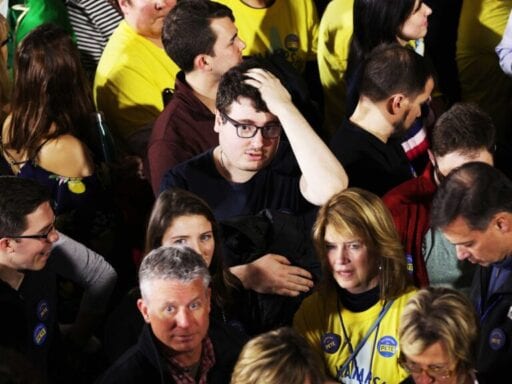Notice something missing?
Let’s give New Hampshire the tiniest bit of credit. Unlike the Iowa Democratic Party, New Hampshire appears capable of counting votes in a fair and expeditious manner, and the rules more or less make sense. No one involved in the New Hampshire primary ever needs to utter the words “state delegate equivalent.”
But there is one way in which New Hampshire very closely resembles Iowa, which brings us to this chart:
This CNN NH Exit Poll table really says everything you need to know about NH demographics. https://t.co/bbkYmX8xFI pic.twitter.com/gvFUsNtDrf
— Pippa Norris (@PippaN15) February 12, 2020
CNN’s exit polls were able to determine which candidates white voters in the Democratic primary preferred. But the state is so overwhelmingly white that CNN’s exit pollsters couldn’t even find enough black, Hispanic, or Asian voters to reach reasonable conclusions about which those voters’ candidate preferences. Indeed, New Hampshire is even whiter than Iowa: Just under 91 percent of Iowans are white, as compared to more than 93 percent of people from New Hampshire.
New Hampshire also bears little resemblance to the nation as a whole in other important ways. There are no major cities in New Hampshire, for example. The largest city in the state, Manchester, has a population of about 113,000.
To put that number in perspective, there are more than 50 cities in California with more people than Manchester, New Hampshire — including such metropolises as Roseville, Thousand Oaks, and Visalia.
Iowa and New Hampshire’s special status, moreover, matters a great deal, as voters in early states are more likely to impact the race than people who vote later in the process. According to a study by economists Brian Knight and Nathan Schiff, “an Iowa or New Hampshire voter had the same impact as five Super Tuesday voters put together.”
The purpose of a Democratic presidential primary, of course, is to choose a Democratic candidate for president. But the Democratic Party is increasingly a party of racial diversity and of urban voters. It makes no sense for the party to begin its nominating process with two states that bear little resemblance to Democrats nationwide.
Author: Ian Millhiser
Read More



